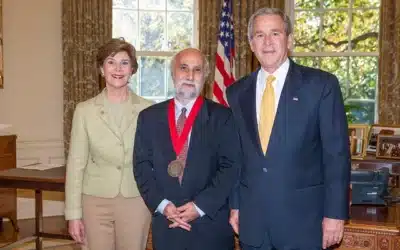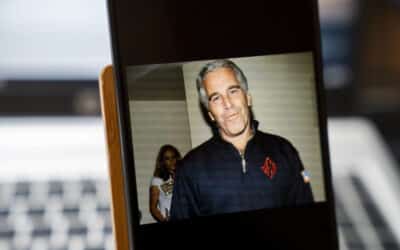Patrick Cockburn on misreporting in Syria and Iraq
The nadir of Western media coverage of the wars in Iraq and Syria has been the reporting of the siege of East Aleppo, which began in earnest in July and ended in December, when Syrian government forces took control of the last rebel-held areas and more than 100,000 civilians were evacuated. During the bombardment, TV networks and many newspapers appeared to lose interest in whether any given report was true or false and instead competed with one another to publicise the most eye-catching atrocity story even when there was little evidence that it had taken place. NBC news reported that more than forty civilians had been burned alive by government troops, vaguely sourcing the story to ‘the Arab media’. Another widely publicised story – it made headlines everywhere from the Daily Express to the New York Times – was that twenty women had committed suicide on the same morning to avoid being raped by the arriving soldiers, the source in this case being a well-known insurgent, Abdullah Othman, in a one-sentence quote given to the Daily Beast.
The most credible of these atrocity stories was given worldwide coverage by Rupert Colville, the spokesman for the UN High Commission for Human Rights, who said on 13 December that his agency had received reliable reports that 82 civilians, including 11 women and 13 children, had been killed by pro-government forces in several named locations in East Aleppo. The names of the dead were said to be known. Further inquiries by the UNHCHR in January raised the number of dead to 85, executed over a period of several days. Colville says the perpetrator was not the Syrian army, but two pro-government militia groups – al-Nujabah from Iraq and a Syrian Palestinian group called Liwa al-Quds – whose motives were ‘personal enmity and relatives against relatives’. Asked if there were other reports of civilians being executed in the final weeks of the siege, Colville said there were reports of members of the armed opposition shooting people trying to flee the rebel enclave. The murder of 85 civilians confirmed by multiple sources and the killing of an unknown number of people with bombs and shells were certainly atrocities. But it remains a gross exaggeration to compare the events in East Aleppo – as journalists and politicians on both sides of the Atlantic did in December – with the mass slaughter of 800,000 people in Rwanda in 1994 or more than 7000 in Srebrenica in 1995.
All wars always produce phony atrocity stories – along with real atrocities. But in the Syrian case fabricated news and one-sided reporting have taken over the news agenda to a degree probably not seen since the First World War. The ease with which propaganda can now be disseminated is frequently attributed to modern information technology: YouTube, smartphones, Facebook, Twitter. But this is to let mainstream media off the hook: it’s hardly surprising that in a civil war each side will use whatever means are available to publicise and exaggerate the crimes of the other, while denying or concealing similar actions by their own forces. The real reason that reporting of the Syrian conflict has been so inadequate is that Western news organisations have almost entirely outsourced their coverage to the rebel side.
Read the rest at the London Review of Books.






























